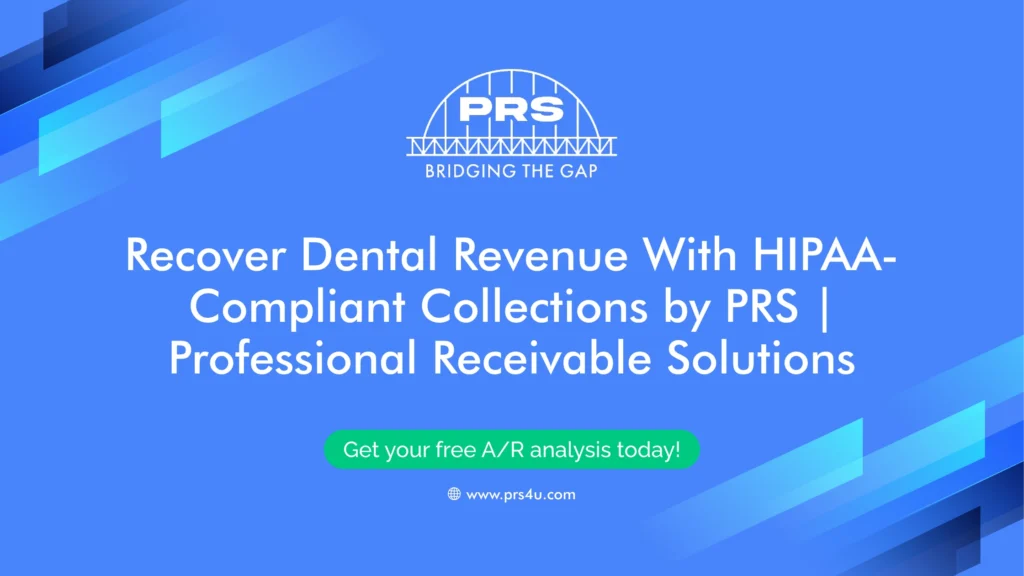Why Is HIPAA Compliance in Dental Debt Collection So Important?
Dental teams put a great deal of effort into patient care, yet late payments still create stress, cash-flow issues, and significant administrative work. Sending accounts to collections may seem like the only way to keep revenue flowing, but sharing patient information carries a risk. One wrong step can damage trust or trigger penalties.
The risk is exceptionally high. The average healthcare data breach now costs organizations more than $7.42 million per incident. Dental practices operate with far tighter margins, so a mistake involving protected health information could be devastating financially and emotionally for the entire team.
Patients count on you to guard their privacy. You want payments resolved, but not at the expense of someone feeling exposed or disrespected. Understanding HIPAA Compliance in Dental Debt Collection helps dental teams protect patient information while managing overdue accounts responsibly.
What Does HIPAA Compliance in Dental Debt Collection Mean?
Debt collection in healthcare is never as simple as sending reminders or making phone calls. Every piece of patient information, including balances, dates of service, procedures, insurance details, and even the fact that someone received care at your practice, falls under HIPAA protection.
HIPAA compliance means ensuring that patient data stays protected at every stage of the collection process. A qualified dental collection agency safeguards this information through:
- Secure Data Systems: Patient details are encrypted, stored safely, and transferred through protected channels.
- Restricted Access: Only authorized and trained personnel are permitted to handle sensitive information.
- Confidential Communication: Contact methods are carefully chosen to prevent exposing treatment details or balances.
- Comprehensive Documentation: Every action and data transfer is logged to ensure accountability and transparency.
- Controlled Data Sharing: Information is never disclosed or reused beyond the purpose of collection.
HIPAA rules don’t stop at the front desk. Once an account is transferred to a collection agency, the responsibility for the data also transfers to them. Reputable agencies:
- Complete ongoing HIPAA and data security training
- Sign Business Associate Agreements (BAAs) with dental practices
- Follow strict internal protocols aligned with the latest federal guidance
Why Does HIPAA Compliance Matter for Dental Practices in Collections?
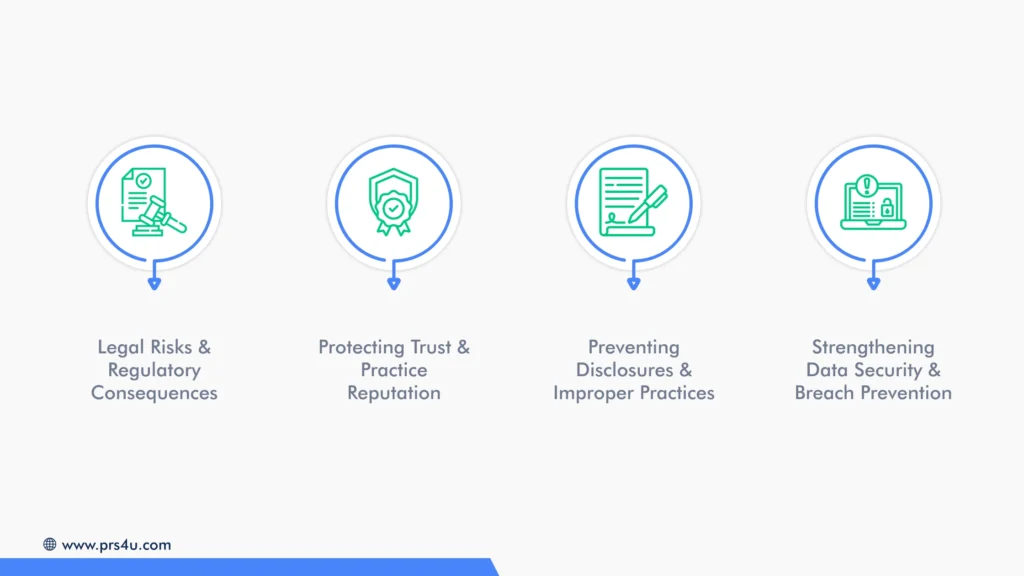
Dental billing already presents numerous challenges, and when overdue accounts are involved, even minor mistakes can escalate rapidly. HIPAA compliance ensures that patient information remains protected throughout the collection process, safeguarding the practice legally and preserving trust.
1. Legal Risks & Regulatory Consequences
Failure to protect Protected Health Information (PHI) throughout collections can trigger enforcement actions that cost practices far more than the unpaid bill. Regulators expect secure communication, limited data access, and strict documentation. Any lapse, even accidental, can result in major financial and operational fallout.
- Civil Penalties: Fines can reach thousands to millions of dollars, depending on severity and negligence
- Corrective Action Plans: Practices may be forced into long-term oversight and costly compliance programs
- Audit Risk: One complaint or breach can lead to deeper investigations into overall privacy practices
- Liability Exposure: Legal disputes with patients increase when their information is mishandled.
2. Protecting Trust & Practice Reputation
Dental relationships are built on confidence. If patients fear their information could be mishandled, they may hesitate to return or recommend your practice. It can be a damaging outcome when referrals are important to growth. Compliance during collections signals respect, professionalism, and accountability.
- Confidentiality Assurance: Patients feel secure knowing private details won’t be revealed
- Brand Integrity: A privacy breach can quickly spread through the community and online reviews
- Stronger Patient Relationships: Handling financial matters with discretion shows compassion
- Retention Benefits: Patients are more likely to stay loyal when they trust your processes
3. Preventing Disclosures & Improper Practices
Dental debt collections involve sensitive financial and medical information, making it easy for missteps to occur if a collector isn’t trained in healthcare compliance. Aggressive tactics or careless messaging can unintentionally disclose private details to employers, family members, or others.
- Communication Controls: Every message must avoid revealing treatment details
- Training Requirements: Collectors must understand healthcare-specific boundaries
- Respectful Approach: Professional tone reduces complaints and disputes
- Documentation Standards: Every interaction must align with privacy protocols
A compliant agency understands that patient dignity matters even during difficult financial conversations.
4. Strengthening Data Security & Breach Prevention
More digital communication means more exposure to cyber risk. Collection agencies often handle large volumes of PHI, making them attractive targets for hackers. Protecting this information requires strong cybersecurity and modern encryption standards.
- Secure Data Transfer: Files must be sent via encrypted channels, never unsecured email
- Access Restrictions: Only authorized professionals can view patient accounts
- Continuous Monitoring: Systems must detect and respond to suspicious activity
- Breach Response Plans: Prepared protocols reduce damage when incidents occur
Compliance Requirements in Dental Debt Collection
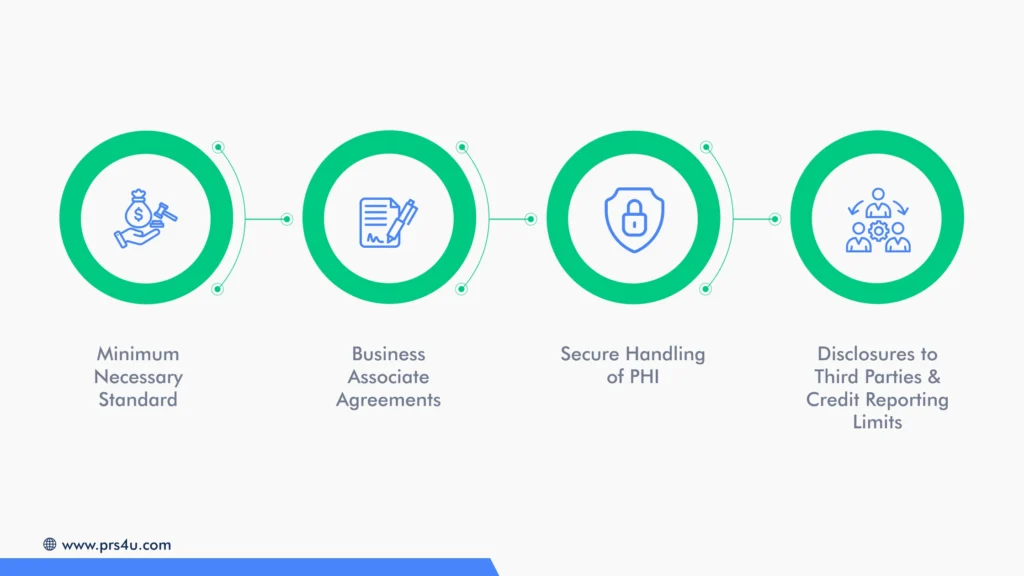
HIPAA compliance is a coordinated set of standards that protect patient privacy at every step of the collection process. Dental practices must ensure that any agency contacting patients, storing data, or reporting unpaid accounts complies fully with these requirements, not partially.
1. Minimum Necessary Standard
Information shared with collectors must be strictly limited to what is necessary to resolve the account. This includes avoiding disclosure of treatment details and restricting internal access to authorized personnel only.
Examples of appropriate limitations
- Basic patient identifiers, dates of service, and balance owed
- No clinical notes, diagnosis codes, or unnecessary registration data
- Controls that prevent staff from viewing more than required
A disciplined data-sharing approach reduces breach risk and supports patient dignity.
2. Business Associate Agreements
Once PHI enters the hands of a collector, they are officially considered a Business Associate under HIPAA. A formal BAA is mandatory before any transfer of patient data.
What a compliant BAA should enforce
- Defined permitted uses of PHI
- Clear security obligations and reporting timelines
- Liability and penalties for mishandling information
A signed BAA ensures legal accountability and shared protection.
3. Secure Handling of PHI
Every piece of patient information must be guarded through technical, physical, and administrative safeguards. A modern HIPAA-compliant agency uses secure systems that prevent interception or unauthorized access.
Examples of required safeguards
- Encryption of data being transmitted and stored
- Access controls and authentication for system users
- Regular audits, staff training, and cybersecurity monitoring
4. Disclosures to Third Parties & Credit Reporting Limits
Dental practices must also comply with HIPAA and the Fair Credit Reporting Act when delinquent accounts are referred to credit reporting agencies. Regulations restrict what can be shared and require notice to the patient before any information is reported.
Compliance checkpoints:
- Only necessary financial information may be sent to bureaus
- Patient notification obligations must be met
- No sharing of treatment specifics or protected health details
How Do Specialized Agencies Ensure HIPAA Compliance?
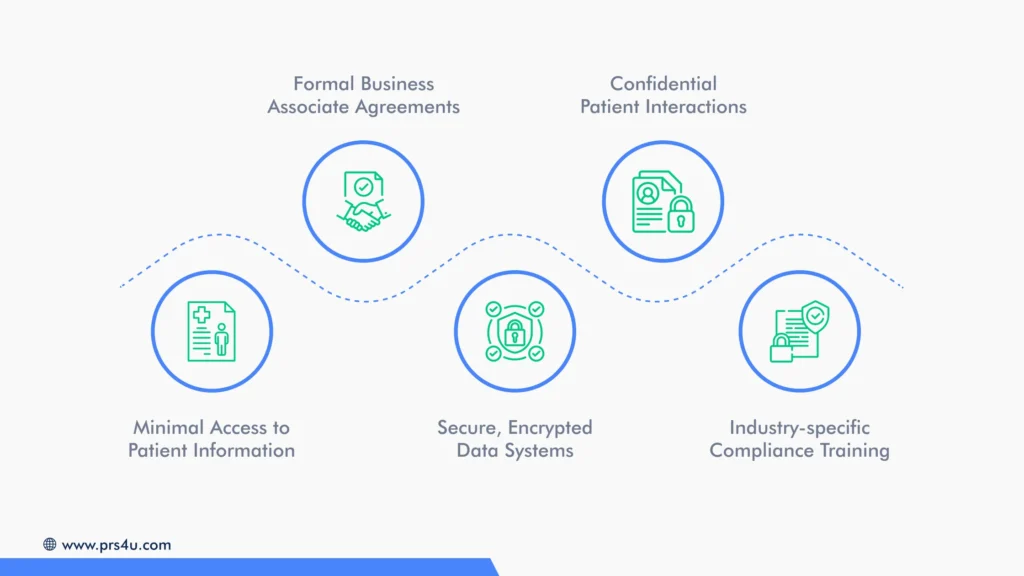
Managing overdue balances should never put a dental practice at risk of legal danger or jeopardize patient trust. Agencies that specialize in healthcare collections operate with compliance built into every step of their process, ensuring PHI stays protected while resolving outstanding accounts professionally.
Specialized agencies typically support HIPAA compliance through:
- Minimal Access to Patient Information: Only the limited, necessary details required to collect the balance are used or shared internally.
- Formal Business Associate Agreements: Clear contracts define security responsibilities, accountability, and data use rules before any PHI exchange takes place.
- Secure, Encrypted Data Systems: Technical safeguards such as encrypted transmission, role-based access, secure storage, and audit trails help prevent breaches.
- Confidential Patient Interactions: Collectors follow communication rules that avoid public disclosures or revealing sensitive medical details inappropriately.
- Industry-specific Compliance Training: Teams are trained in HIPAA requirements, the Minimum Necessary Standard, and restrictions around disclosures to credit agencies or third parties.
Dental practices gain peace of mind knowing unpaid balances are handled with empathy, diplomacy, and the highest compliance standards, so patient relationships stay intact while revenue continues to flow.
Recover Dental Revenue With HIPAA-Compliant Collections by PRS | Professional Receivable Solutions
Revenue shouldn’t disappear just because patients fall behind or insurance is slow to process. Professional Receivable Solutions LLC supports dental practices with a HIPAA-compliant, respectful approach to collections that strengthens financial performance while preserving loyalty.
We take the burden off your team, recover revenue earlier in the collection cycle, and provide you with complete control and transparency throughout the process.
Here’s what you gain when you partner with PRS4U:
- Higher Recovery Rates: A proven, diplomatic 3-stage process that consistently delivers stronger returns.
- Opportunity Cost Savings: Free your staff from repetitive outreach and let them focus on patient care.
- Collection Control: Submit, pause, or stop accounts anytime based on your communication with patients.
- Better Results on Aging Accounts: We engage early, so balances don’t slip into the “no-pay” zone.
- Lower Cost Pricing: Flat-fee structure averaging $10 per account, regardless of balance size.
- Consumer & Commercial Debt Collection: Recover 100% of revenue collected during Stage One with zero percentage fees.
If your office is ready to improve cash flow and protect valued patient relationships, PRS4U is ready to help.
Get your free A/R analysis today and see how a HIPAA-compliant collection approach can recover unpaid balances, protect your reputation, and keep your focus on patient care.
